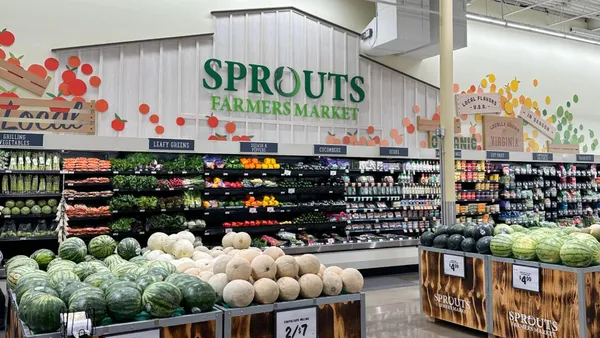Dive Brief:
- Facebook has signed on a number of millennial-focused publishers, including Vox Media, BuzzFeed, ATTN and Group Nine Media, to produce original programming for its new premium video service, according to a report in Reuters.
- Facebook's premium video content comes in two tiers, as previously reported, though Reuters offered a more detailed picture of how that works. Scripted shows of 20 to 30 minutes in length will be owned by Facebook, which will pay $250,000 per episode, similar to the model of something like Netflix, while shorter scripted and unscripted shows of five to 10 minutes in length will not be owned by Facebook and will command $10,000 to $35,000 per episode.
- In the latter case, Facebook will share 55% of ad revenue made from mid-roll ad breaks with publishers, and all of the newly signed publishers will focus on producing the shorter content, sources told Reuters. Facebook is expected to officially announce its premium video service next month during the Cannes Lions advertising festival.
Dive Insight:
Facebook's premium video service — perhaps its most significant initiative to date in turning video content into a revenue driver — offers a two-pronged approach, competing against both over-the-top (OTT) services like Netflix with longer-form scripted shows and also platforms like YouTube or Snapchat with shorter-form, more off-the-cuff originals. Facebook needs a strong early sell here to attract advertisers who are eyeing a rapidly growing number of digital video providers, so bringing on publishers with large, youth-centric audiences like Vox or BuzzFeed should bolster its strategy.
Facebook is pushing hard into video as ad load on its main platform is expected to slow down considerably in the second half of 2017, as noted by CFO David Wehner on the company's recent Q1 earnings call. Publishers are also eyeing digital video to ramp up revenues and attract younger eyeballs as other offerings continue to weather headwinds like ad blocking technology.
While Facebook hopes to monetize much of its new video offerings through TV-style mid-roll ad breaks, some marketers remain skeptical that the video service will be a safe bet given Facebook's numerous internal metrics errors, notably in regards to over-inflating viewability for video ads.











